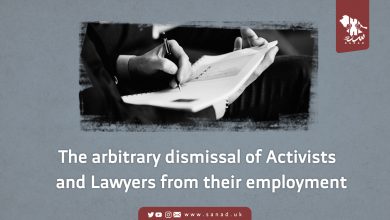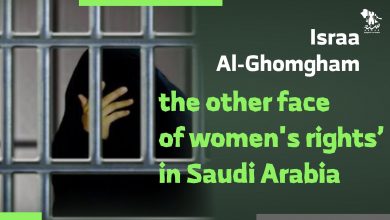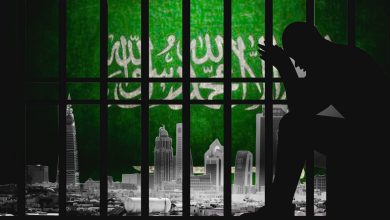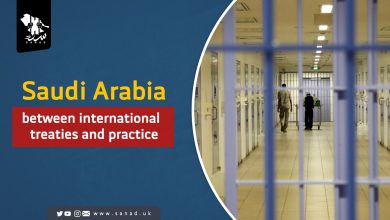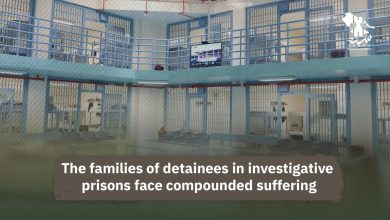
Nine years of imprisonment, torture, and mistreatment without charges
Nine years of imprisonment, torture, and mistreatment without charges
This report discusses the case of Mr. Hamad Al-Neyl Abu Kassawy Muhammad Al-Noor, a Sudanese citizen who was arbitrarily arrested by the Saudi authorities in 2004 and remained detained for nine years, enduring severe violations.
The Arrest Nightmare
In 2004, Mr. Hamad Al-Neyl Abu Kassawy traveled from Damascus to Khartoum via Saudi Arabian Airlines, which granted him a 96-hour transit visa for Umrah. However, his journey soon deviated from its course, turning into a human tragedy representing a grave violation of human rights.
Sanad Human Rights Organisation, met Mr. Hamad Al-Neyl, who stated in an exclusive statement to SANAD that the plane he was on stopped at Medina Airport before reaching Jeddah, where he was supposed to go to Mecca for Umrah. During the stop, he was led to the passport office at the airport and remained there for two hours, then was transferred to the investigations office. He was later informed that there was a suspicion that required him to go into the city for only ten minutes.
Mr. Hamad Al-Neyl Abu Kassawy agreed to the transfer, believing there was nothing suspicious and that the matter was merely a misunderstanding that would be resolved. He did not know that this suspicion would continue for nine full years in Saudi prisons, according to documents reviewed by Sanad.
Upon his arrival at Medina prison, he was imprisoned in a filthy, dilapidated solitary cell for over nine months, experiencing various forms of systematic torture by investigators Fahd Al-Ahmari and Badr Al-Shahrani. He was not charged with anything during the investigation except being forced to confess to what he did not know.
Isolation in Saudi Prisons
The arbitrary detention and brutal torture during the investigation were not the only ordeals faced by Hamd Al-Neel; the Saudi authorities further exacerbated his suffering by prohibiting him from communicating with his family for seven full months, only allowing contact after he went on a hunger strike. They also rejected his request to communicate with the Sudanese ambassador in Riyadh, aiming to isolate him completely from any external influence.
Delayed Trial and Delayed Acquittal
According to a statement made by Mr. Hamd Al-Neel to SANAD Human Rights organization and the documents they received, no charges were filed against him during his detention. Each time he demanded this, he was subjected to severe violence and torture. After nine years of detention, he was finally brought to trial and acquitted due to a lack of sufficient evidence, leading the judge to order his release. (SANAD retains the court verdict issued).
House Arrest
Despite his acquittal by the court and his subsequent release, confirmed by the appellate court, Mr. Hamd Al-Neel remained under house arrest in Saudi Arabia for an entire year, completing ten full years held on baseless suspicion. He was moved between five Saudi prisons: Medina Prison, Al-Ruwais Prison in Jeddah, Dhahban Prison, Sha’ar Prison, and finally, the Central Prison in Riyadh.
Conclusion
The case of Hamad Al-Neyl Abu Kassawy exemplifies the decline of human rights in Saudi Arabia under a repressive authoritarian regime lacking the simplest methods of justice, not to mention the prohibition of any human rights visits to Saudi prisons crowded with wronged and forgotten detainees.
This case calls for the international community and human rights organizations to pressure the Saudi government to halt arrest campaigns and chains of violations, allow observers to visit Saudi prisons, and release all wronged detainees held therein.


